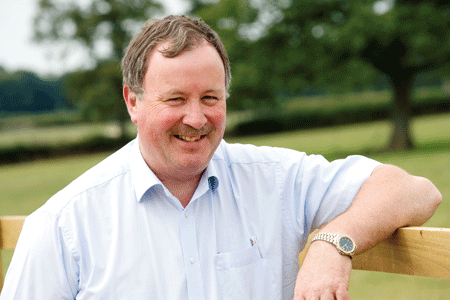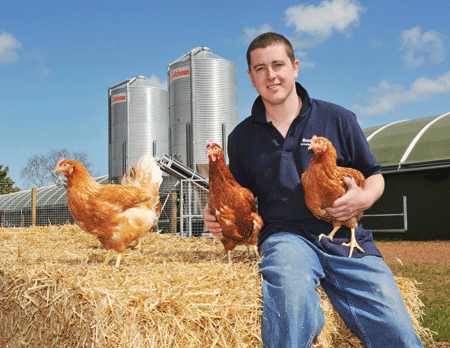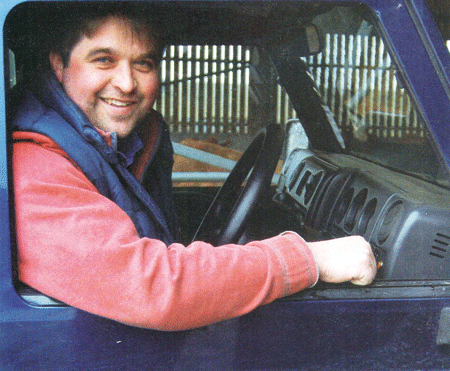Poultry producers use music to calm their flocks

An increasing number of poultry producers are playing music in their hen houses – but is it for their benefit or the birds? Apparently, a bit of both – as some people insist that music not only relaxes animals but also boosts production. So which types of music work best?
Charles Bourns, poultry board chairman of the NFU, keeps up to 70,000 barn chickens at South End Poultry Farm, Charfield, Gloucestershire, and swears by Classic FM.

“I’ve tried pop music but it’s too changeable, with lots of talking – the birds prefer Classic FM, much to my childrens’ disgust,” he says. He introduced music to the farm about five years ago, as part of a television programme to combat anti-chicken farming propaganda.
“Compassion in World Farming always had a go about leg weakness and so on, which I’ve never had on my farm,” he says. “So we decided to get our message over and did a film of the chickens dancing around a radio in the barn, and the local radio station took requests to play to them.”
Mr Bourns noticed such a difference in the chickens that he has played music to them ever since. They are so passionate about their music that he can’t introduce it to them until they are at least two or three days old. “I don’t play it to day-olds, as they follow the noise and crowd round the radio.”
The music is played 24 hours a day, deadening other noise in the sheds, and making the birds more peaceful. It also improves growth rates, he claims. “If the birds get startled they rush around and fight and don’t eat, so it is bound to help. Not being stressed is much better for all of us.”
Stuart Retallack, who keeps 500 free-range laying hens at Trekennick Farm, Altarnun, Cornwall, agrees. “The background music covers up loud noises such as low aircraft, keeping the hens more relaxed in their environment.” However, Radio 1 is his station of choice. “I prefer it – the hens don’t seem to have any preference,” he says.
Organic egg producer James Maclean, who owns Border Eggs near Berwick on Tweed, prefers playing Radio 2 to his flocks.

It gets the birds used to people when somebody comes into the shed, he says.
“I chose Radio 2, as it’s a talking station rather than just music all the time and the birds get to hear different voices and noises.
At 16-20 weeks the birds are all indoors but by placing the speakers at either end of the shed, it draws the birds toward them and as a result they spread out more, he says. It prevents them crowding together.
The radio is on a timer and comes on when the lights in the sheds are turned on and goes off 20 minutes before the lights go out. “This could help the chickens get used to associating the radio going off with night time.”
Mr Maclean later decided it was worth while spending £100 to cover the costs of installing speakers and a sound system in the new sheds for the second and third flocks.
Sheepdrove Farm, Lambourn, Berkshire, takes a slightly different approach, playing a CD of common outdoor noises to its growing chicks during daylight hours, before they are released on to the range.
“We recorded all the things that go on outside – sheep being moved, cows mooing, helicopters, planes, tractors and so on, and play it to them so that they’re not phased when they are turned out at three weeks old,” says farm manager Ian Salmon.

The farm produces 2500 organic free-range birds a week, and requires its two contract rearers to adopt the same system using copies of its CD. “Exposing the chicks to all they will experience later in life helps to reduce the stress caused by surprises when they move to the fields.”
